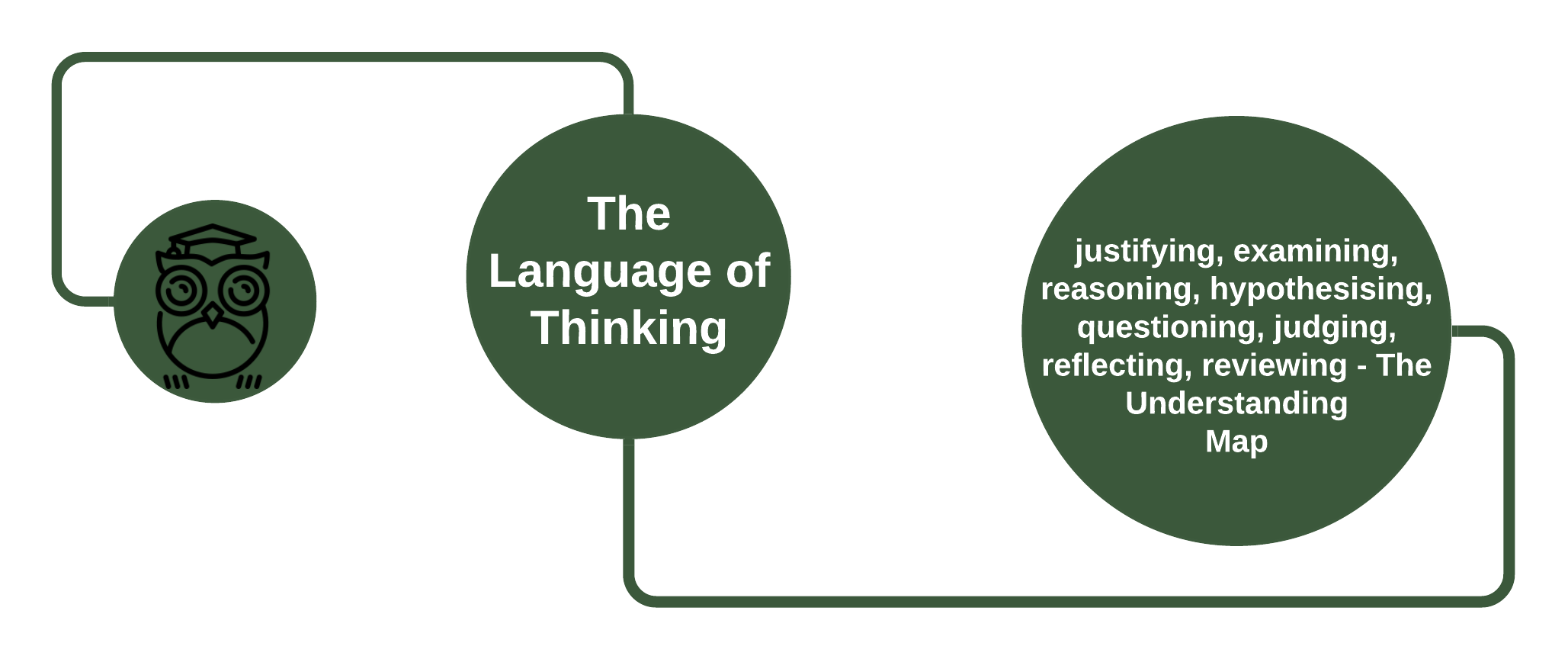A good place to start in our efforts to shift the impact that our language choices have is with a focus on the language of thinking. If we believe that all learning is a consequence of thinking, it is natural to select language moves that encourage this from our learners.
Our goal here is to notice the language moves we are making and to then become more deliberate and strategic with our choices. As we seek to make thinking a routine part of the culture of our schools, we should look closely at the messages we send with the words that we choose. We begin our journey towards a more strategic approach to the use of language by becoming attentive to the moves we are already making.
Have you ever noticed how often the word “work” is used within schools? Even in schools with a focus on student-centred learning and thinking, the word work is used with great regularity. Students are routinely reminded to get on with their work, do their work, finish their work, get back to work and improve their work. Noticing the frequency with which we refer to work as a part of our student’s day encourages many teachers to seek alternatives.
When we stop and think about what we want our students to be doing, we are likely to consider words other than work. Maybe we want our students to be learning, or thinking, or collaborating, or analysing, or synthesising, or questioning or communicating. Each of these words focus our learners on aspects of their learning more strategic and cognitive than what is implied by the word work. Work is something to be done and out behind us. Learning is an ongoing endeavour that results in growth and change.
The teacher who is aware of this language move will utilise questions that engage their students in thinking. Often the most powerful change we can make to our teaching is the addition of one simple question: What makes you say that? By asking this question, I invite my students to move beyond providing what they imagine to be an accurate answer. By asking, ‘What makes you say that?’ I require that my students offer reasoned logic for the responses they provide. By asking this question often, I send the message that I value their thinking. When I then notice and name the thinking moves made by my students, I reinforce this message. If I praise a student for their critical thinking, for their efforts to make connections or to reason with evidence, I send clear signals that learning requires thinking.
Thinking routines are an excellent set of tools, structures and patterns of behaviour for scaffolding thinking. A well-chosen thinking routine can activate powerful learning for our students. One of the reasons why thinking routines are so effective is that the language choices that they deploy have been planned with deliberate care to achieve the desired result. However, thinking routines are most effective when they are deployed to target a thinking move that we hope to make routine in our classrooms. As Mark Church eloquently states, “Our goal is not to use a thinking routine, but to make thinking routine”.
When we seek to make a particular thinking move routine for our learners, our routine language choices can have an impact greater than our scattered use of thinking routines. If, for example, it is my hope that my students will routinely seek to make connections between and across concepts we are investigating, I will push for this mode of thinking with the language moves I make. I will routinely ask questions that invoke connections, and I will praise student responses that demonstrate their efforts to make connections. In making these moves, I aim to send a message about the type of thinking I valued, and in this way, I shape the culture of our classroom.
So what messages are you sending about thinking? Do your language moves privilege work over learning or thinking? What thinking moves would you like to see your students engage with routinely, and how might you reshape your language moves to facilitate this?
By Nigel Coutts

